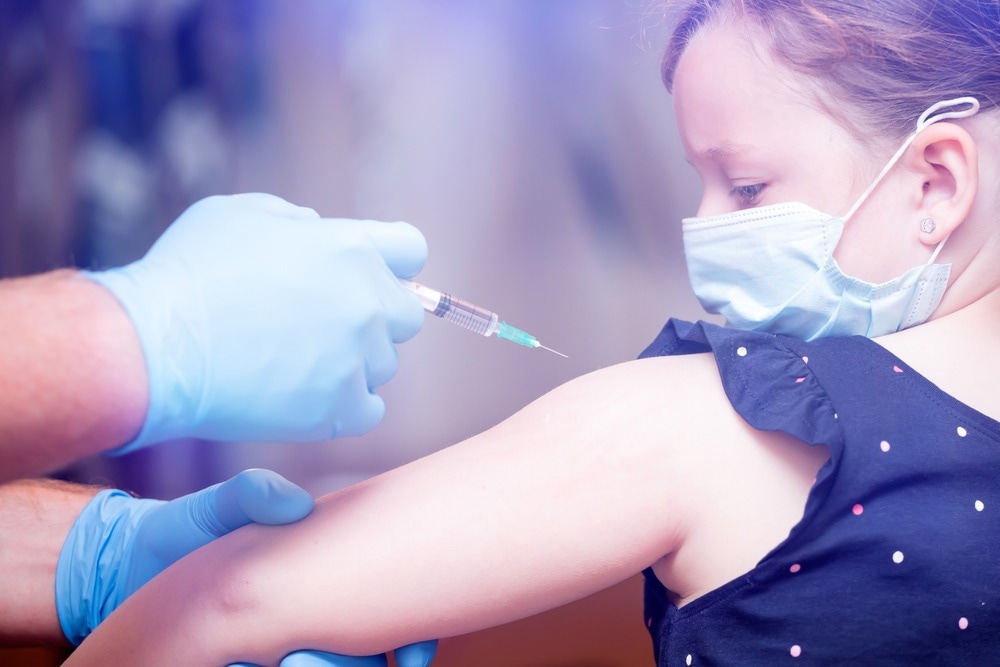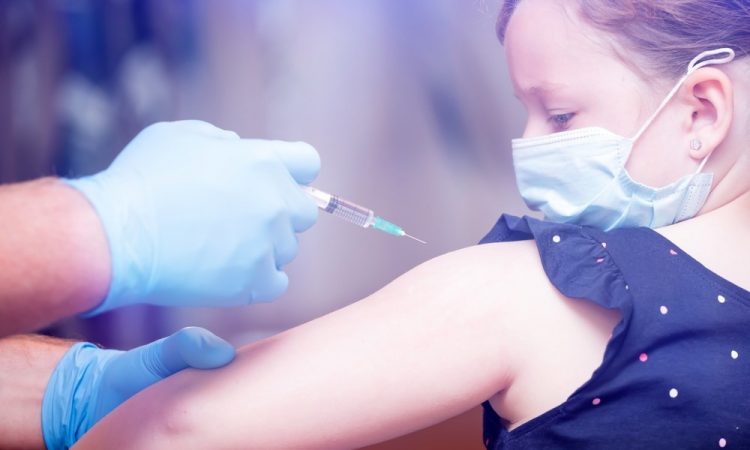A recent study published in The Lancet Infectious Diseases examined the effects of prior coronavirus disease 2019 (COVID-19) infection and vaccination on subsequent infection with the severe acute respiratory syndrome coronavirus 2 (SARS-CoV-2) Omicron variant in children.

SARS-CoV-2 Omicron is a highly transmissible variant that can cause severe illness. Prior SARS-CoV-2 infection and COVID-19 vaccination have been reported to alleviate the risks of Omicron infection and severe COVID-19 outcomes in adolescents and adults. Nevertheless, data on vaccine effectiveness in children under 12 are scarce, while the effects of a prior infection on reinfection with SARS-CoV-2 Omicron remain poorly understood.
About the study
In the present study, researchers characterized the effects of SARS-CoV-2 vaccination and prior COVID-19 on Omicron reinfection in children under 12 in North Carolina. Two age groups of children, 0-4 and 5-11, were defined. The team used data from a surveillance system comprising positive test results for all COVID-19 cases and reinfections.
Vaccination data were obtained from the COVID-19 Vaccination Management System until January 6, 2023. Data on hospitalization and death between March 11, 2020, and January 6, 2023, were collected. Healthy children and those with underlying conditions were included. Population-level SARS-CoV-2 variant prevalence data were accessed.
The researchers considered two outcomes – COVID-19 and a composite endpoint of hospitalization or death. The team analyzed the effects of primary vaccination and prior infection on the outcomes. They examined the effectiveness of the booster regimen relative to primary vaccination and compared the efficacies of monovalent and bivalent boosters.
Findings
By January 6, 2023, over 39,000 children aged 5-11 were partially vaccinated, 216,330 were fully vaccinated, and 46,895 were boosted. Further, 11,235 children under five were partially vaccinated, 28,066 were fully vaccinated, and 11,529 were boosted. There were about 116,108 and 42,484 infections among non-vaccinated and vaccinated children aged 5-11, respectively.
Among non-vaccinated COVID-19 cases aged 5-11, 141 hospitalizations and five deaths occurred, whereas 52 hospitalizations and one death occurred among vaccinated COVID-19 cases. Among non-vaccinated children under five, 27,449 infections, including 161 hospitalizations and one death, were documented, while 2094 infections, six hospitalizations, and zero deaths were recorded among those vaccinated.
The effectiveness of the primary vaccination series against infection was 59.9% one month after the first dose, 33.7% after four months, and 14.9% after 10 months in children aged 5-11, with lower estimates for Hispanic and Black children than for children from other ethnic groups. The emergence of newer Omicron variants (BQ and XBB (sub)lineages) decreased vaccine effectiveness.
Among previously infected children aged 5-11, the efficacy of the primary series against infection was 65.3%, 26.4%, and 10.6% at one, three, and six months post-first vaccination, respectively. Among infection-naïve children, these estimates were 59.7%, 36.8%, and 28.6% at one, three, and six months post-first dose, respectively.
The effectiveness of the primary series against severe outcomes was 73.3% at one-month post-first dose and declined after that. The effectiveness of a prior Omicron infection against Omicron reinfection was 79.9% after three months and 53.9% after six months. The long-term efficacy of prior infection was superior in vaccinated children.
The effectiveness of a previous Delta variant infection against reinfection was similar between vaccinated and non-vaccinated children. Prior infection was 83.8%, 76.2%, and 64.9% effective against severe outcomes after three, six, and nine months, respectively. The effectiveness of a monovalent booster against infection was 23.1% after two months; by contrast, a bivalent booster was 47.3% effective after two months.
In children under five, the efficacy of the primary series was 63.8% two months post-first vaccination and 58.1% after five months. The effectiveness of a prior Omicron infection against Omicron reinfection was 77.3% after three months, 64.7% after six months, and 45.2% after nine months. Further, the efficacy of a prior infection against severe outcomes was 61.4%, 58.4%, and 55.1% after three, six, and nine months, respectively.
Conclusions
In summary, vaccination with the mRNA-1273 or BNT162b2 vaccine in children was effective against SARS-CoV-2 infection and severe outcomes, but the efficacy declined over time. The effectiveness of bivalent boosters was higher than that of monovalent boosters. Prior infection conferred strong immunity against reinfection(s), but protection waned over time. Furthermore, vaccination provided additional immunity among those with primary infection; a previous Omicron infection elicited robust immunity, regardless of the vaccination status.
- Lin DY, Xu Y, Gu Y, et al. Effects of COVID-19 vaccination and previous SARS-CoV-2 infection on omicron infection and severe outcomes in children under 12 years of age in the USA: an observational cohort study. The Lancet Infectious Diseases, 2023. doi: 10.1016/S1473-3099(23)00272-4
Posted in: Child Health News | Medical Science News | Medical Research News | Disease/Infection News
Tags: Adolescents, Children, Coronavirus, Coronavirus Disease COVID-19, covid-19, Efficacy, immunity, Infectious Diseases, Omicron, Respiratory, SARS, SARS-CoV-2, Severe Acute Respiratory, Severe Acute Respiratory Syndrome, Syndrome, Vaccine

Written by
Tarun Sai Lomte
Tarun is a writer based in Hyderabad, India. He has a Master’s degree in Biotechnology from the University of Hyderabad and is enthusiastic about scientific research. He enjoys reading research papers and literature reviews and is passionate about writing.
Source: Read Full Article
